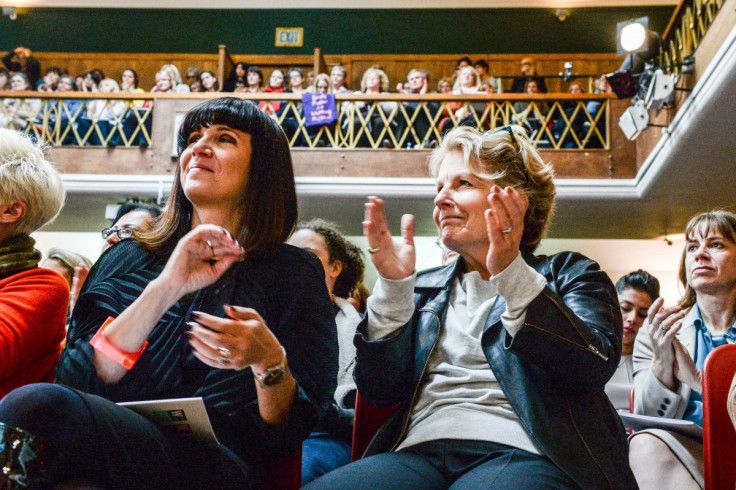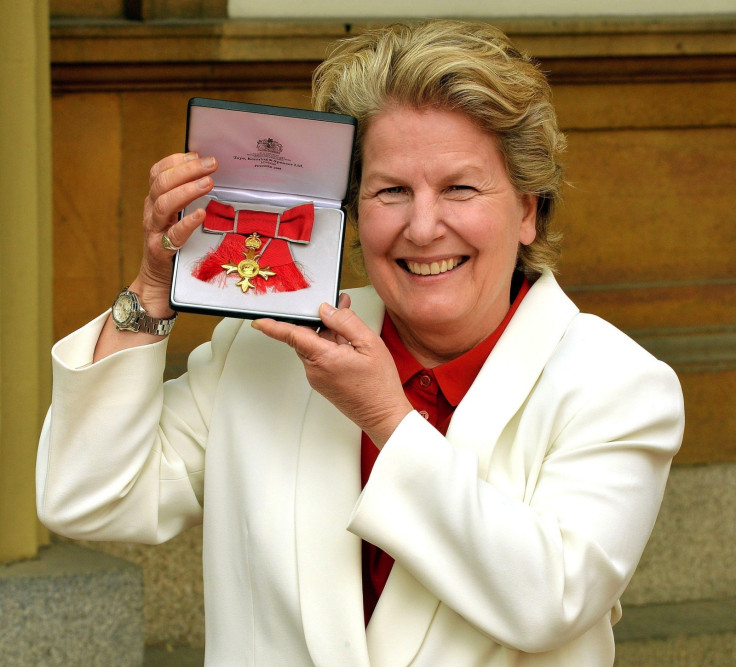Sandi Toksvig's Women's Equality Party is a middle-class ladies' campaign group doomed to fail

When author and comedian Sandi Toksvig announced in April that the Women's Equality Party would be a "non-partisan" party, "not left or right", it seemed the project had failed before it even started. Tuesday's manifesto launch was confirmation. Oxbridge-educated and affluent, Toksvig is part of a subset of women who are privileged enough to be able to ignore a simple truth: class inequality and poverty are feminist issues.
In the UK, as across the world, women suffer disproportionate levels of economic hardship. Single mothers are particularly likely to live in poverty – just over half of single-parent families in the UK currently live below the government-defined poverty line; the vast majority are headed by women. For all of David Cameron's conference speech bluster, poverty is also a partisan issue.
Our government is pulling a reverse Robin Hood: taking from the poor and giving to the rich. What good is a feminist party which doesn't acknowledge that this also means taking from women and giving to men?
The tax and benefit reforms planned by this government are going to leave the poorest 20% of the population – a majority of whom are female – out of pocket by more than £1,000 per year on average. Some 70% of the burden of tax credit cuts will fall on mothers in working families and single mums are the group most likely to suffer unfair Jobseeker's Allowance sanctions.
At the same time, increases to income tax thresholds will leave many relatively affluent people even better off than they were before. The inheritance tax cut takes £1 billion per year which could be spent on vital services and welfare and instead hands it over to the wealthiest 6% of the population.
Our government is pulling a reverse Robin Hood: taking from the poor and giving to the rich. What good is a feminist party which doesn't acknowledge that, demographically, this also means taking from women and giving to men?
The Women's Equality Party justifies the conspicuous absence of such topics from its manifesto by claiming it "will never take a party line on issues outside our remit: to bring about equality for women". In doing so, it makes a strong statement about which women it actually aims to bring about equality for.
Compare the issues it does and doesn't consider part of its "remit".
The widening pay gap for women returning to work after motherhood primarily affects individuals in relatively well-paid, professional roles. Nonetheless, it's singled out as a major policy focus. Middle-class grievances are assumed to be universally significant, yet the financial hardship experienced by many working-class women is apparently a marginal concern.
In recognition of the fact not every working mother is a university-educated professional, the manifesto pays lip service to challenging societal attitudes which lead to stereotypically "female" caring work being compensated at a lower rate than manual labour. However, no explanation is given of what this would actually mean, in policy terms, beyond righteous tutting and head-shaking at the existing situation.
No mention is made of one example of undervalued caring work that could be straightforwardly addressed through government policy: the woefully inadequate Carer's Allowance paid to individuals on low incomes looking after elderly, disabled and ill people.
What's more, by refusing to take a stance on questions of political economy, the Women's Equality Party limits its ability to tackle even the core issues it claims to focus on.
Funding emergency shelters for victims fleeing domestic violence is a worthy and urgent cause, but it's not a complete solution to the problem of women being financially trapped in abusive relationships.
Truly empowering women to make free choices about their relationships and living conditions means standing against cuts to both in-work and out-of-work benefits. It means opposing the planned £20,000 benefit cap that's expected to leave 100,000 households homeless, and thinking seriously about the consequences of forcing vulnerable women and children to move across the country, away from existing support networks.

In short, it means adopting an explicitly left-wing platform. When you campaign on issues with a clear economic dimension, but rule out the possibility of addressing that part of the problem, your approach will inevitably be ineffective and incoherent. The policy on sex work advocated by the Women's Equality Party is a clear example of this.
The party favours the Nordic Model, which criminalises the purchase of sex and aims to eradicate the sex industry by ending demand. In countries where this has already been implemented there's some evidence to suggest demand may have been reduced, though by no means eradicated, but also that women who continue to sell sex experience increased violence and other risks.
What this approach certainly doesn't do is magic away the economic circumstances which lead many women to enter sex work in the first place. Approximately 70% of sex workers in the UK are single mothers. If the Women's Equality Party refuses to take a stance on government policies that will force this demographic deeper into destitution, how can it claim to be fighting for those who are compelled to undertake prostitution against their wishes?
Its stated commitment to "providing safe alternatives" is an empty promise if that means the kind of poverty-level income that leaves women struggling to pay their rent and skipping meals to feed their children, as two-thirds of single parents are already forced to do.
Feminist groups cannot claim to speak for all women if they disregard inequalities and oppressions at the intersection between gender and other types of inequality.
It's a strange quirk of this particular brand of feminism that it seeks to expand the workplace opportunities of middle-class, professional women to match those of their male peers, but considers removing an option the appropriate way to help women in sex work.
The destitution of many such women is cited as evidence they're not really making a free choice, and thus, that this isn't an issue of women's bodily autonomy except for an irrelevant, privileged minority. However, instead of aiming to alleviate this poverty and therefore enable free decision making, it's presumed that other women should simply make decisions on behalf of the disempowered.
The only way this possibly makes sense as a preferred feminist position is if the alternative of liberation through poverty alleviation is disregarded. This at least partially explains its appeal to the founding members of the Women's Equality Party, who've chosen to deliberately avoid recommending anything so left-wing as the latter option.
The idea of powerful women making decisions for the benefit of all of their gender is at heart of the party's philosophy. Its manifesto cites the under-representation of women in both Parliament and boardrooms as major concerns, advocating legal quotas as the solution in both instances.
In the case of MPs, the claim that "women's experiences would be better represented in the decision parliament takes" as a result of such quotas does not seem entirely insensible. The question that needs to be asked is: which women's experiences?
The manifesto does mention ethnicity and disability as other axes of unequal representation in politics, and thus seems to acknowledge differences in experiences between women. However, the under-representation in parliament of people from lower socio-economic classes is not addressed.
If the priorities of the Women's Equality Party can be taken as at all indicative, affluent, middle-class women cannot necessarily be expected to have any insight into the experiences of a single mother on a low income, about to be hit by tax credit cuts. Unintentionally, its manifesto manages to demonstrate exactly why political representation really is so important: to ensure issues affecting under-represented groups are not ignored.
Feminist groups cannot claim to speak for all women if they disregard inequalities and oppressions at the intersection between gender and other types of inequality. Often, these are the issues considered most pressing by women who are directly affected.
In choosing to make the Women's Equality Party "non-partisan" and "not left or right", its founding members explicitly decided to ignore the nexus between gender and socioeconomic inequality. This constraint makes it possible to reach absurd conclusions. Are we still supposed to celebrate a female CEO as an excellent role model for little girls if she keeps their mothers on insecure, zero-hour contracts?
I'd go as far as to suggest that "feminist political party" is actually a misnomer. The Women's Equality Party is more accurately described as a middle-class ladies' campaign group.
Abi Wilkinson is a freelance journalist based in London who writes about politics, inequality, gender and internet culture, among other topics.
© Copyright IBTimes 2025. All rights reserved.






















